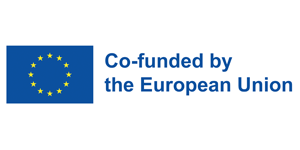Four speakers from across law, policy, sciences and art answer a simple question in under ten minutes each: How do the Great Acceleration charts sense and make sense of the world? Following their response, an open mic format ensues, whereby anyone can respond to what the respective speakers have said, requesting clarification, or suggesting a provocation. In this way, Earth Is a Sensorium unfolds as a public assembly. Through direct public engagement, the event explores what social and technological imaginaries are brought into being by and through accelerating change on a global scale.
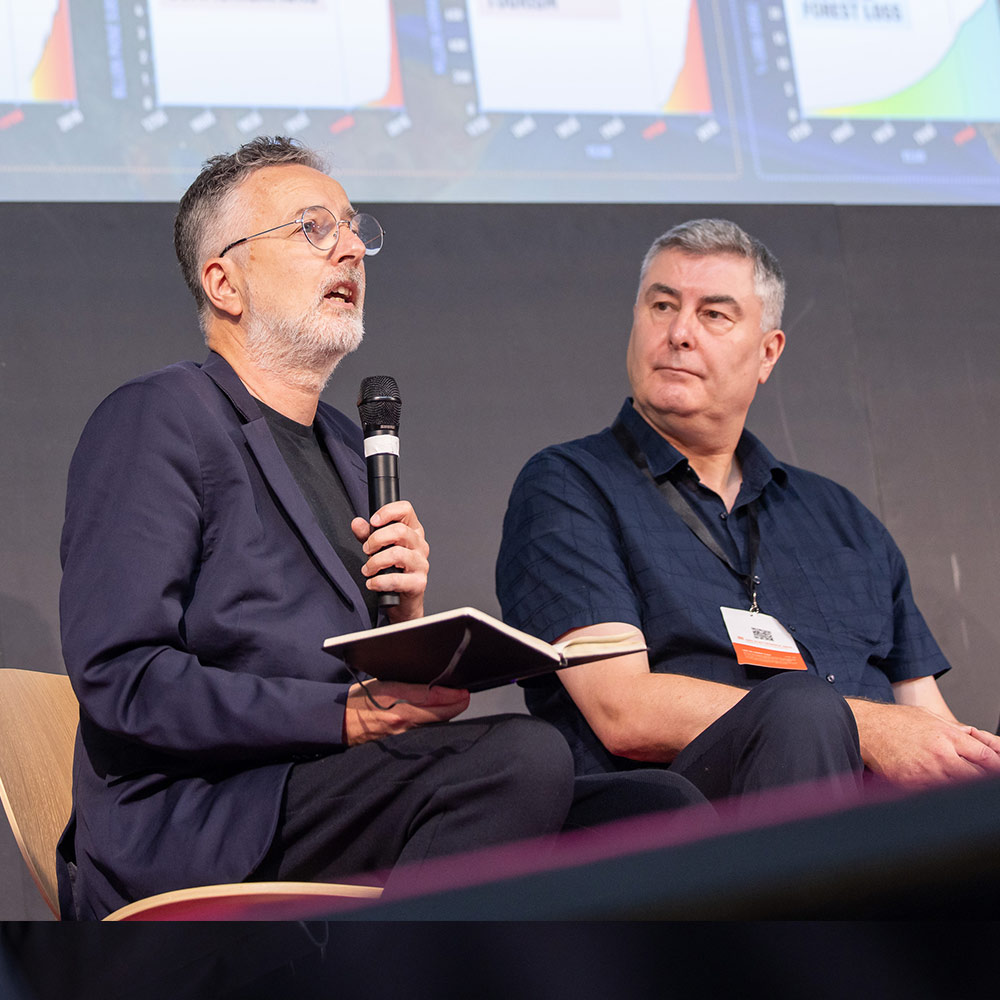
Photo: vog.photo
Panel Discussion
Earth Is a Sensorium
Owen Gaffney (IE/SE), Mark Williams (GB), Armen Avanessian (AT), Ulrike Felt (AT)
POSTCITY, First Floor, Conference Hall
Ticket //
FESTIVALPASS+, FESTIVALPASS, ONE DAY PASS, FREE / No Ticket
-
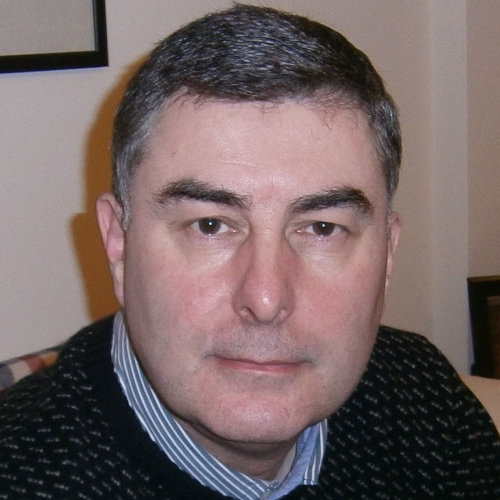
Photo: Milana Williams
Mark Williams
As a palaeontologist, I have spent a lifetime collecting fragments of past lives to weave stories about how life on Earth has changed over millions of years. Sometimes these changes were remarkably good, like the evolution of flowers, and sometimes very bad, like the loss of entire groups of animals such as the dinosaurs. I use the patterns that emerge from the deep geological record to help inform the near-future trajectory of life on Earth in the Anthropocene.
-
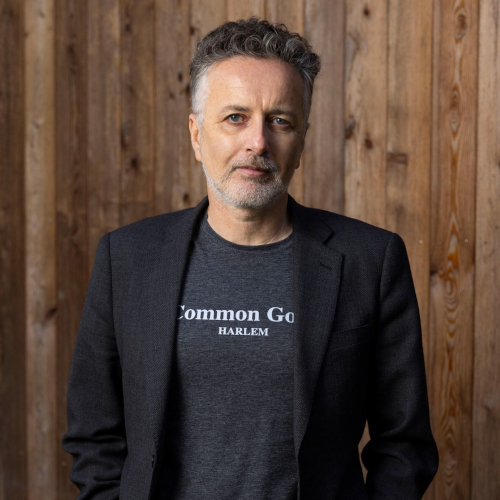
Photo: Michael Campanella
Owen Gaffney
Owen Gaffney is a writer, optimist, producer, record label founder, and researcher. He founded Strange Attractors Records. In July 2025, it released Hard Rain with the Kronos Quartet, Ringo Starr, Laurie Anderson, Iggy Pop, Willie Nelson, and more than 50 other artists. He is chief impact officer at Nobel Prize Outreach and author of Earth For All: A Survival Guide For Humanity (2022) and Breaking Boundaries (2021). He co-leads the Earth4All initiative and is co-founder of the Exponential Roadmap Initiative.
-
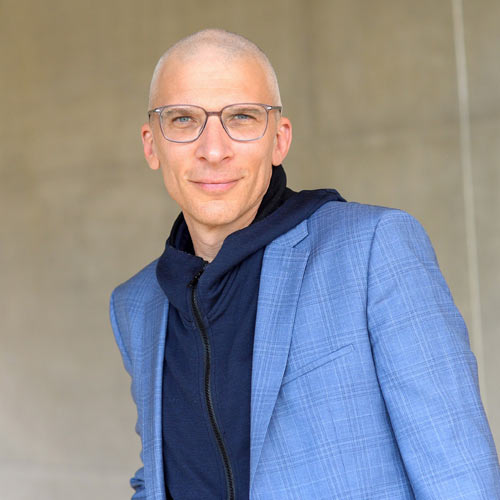
Photo: Lena Reiner
Armen Avanessian
Selected Publications: Metanoia. Ontologie der Sprache (mit A. Hennig), 2014. I Überschrift. Ethik des Wissens–Poetik der Existenz, 2015. I Miamification, 2017. Metaphysik zur Zeit,2018. I I - I. Spekulative Poetik von Feminismus, Algorithmik, Politik und Kapital (mit A. Hennig), 2019. I Konflikt, 2022. I Flüchtigkeitsmanagement. Medientechnologien zwischen Wirtschaft Kultur Politik, 2023. I Planeten Denken. Hyper-Antizipation und Biografische Tiefenzeit, 2024. I Planetarische Ethik, 2025.
-

Photo: Photo Schuster
Ulrike Felt
Ulrike Felt is Professor of Science and Technology Studies (STS) at the University of Vienna. Her work explores how science, technology, and society shape each other, with a focus on research and innovation cultures, public participation, and governance. Her fields of study cover a broad spectrum from the life sciences/biomedicine to physics and environmental research to digital trends. Her current ERC Grant investigates the residues of innovation and their impacts on our environmental futures.
-
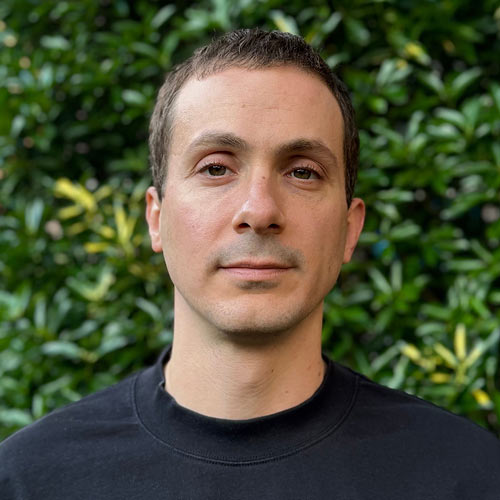
Photo: Alexander Damianos
Alexander Damianos
Dr. Alexander Damianos is a researcher and lecturer in Environmental Law at the University of Kent. He holds a PhD in Law and an MSc in Law, Anthropology & Society from the London School of Economics and Political Science. His research focuses on the historical and social production of knowledge across science and law. He was previously postdoctoral fellow at the Centre for Science & Technology Studies at University of Leiden and a researcher at Studio Olafur Eliasson in Berlin, Germany.
-
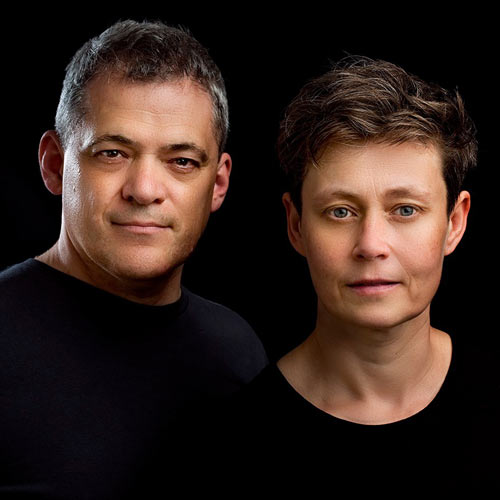
Photo: JL
Territorial Agency
Established by architects John Palmesino and Ann-Sofi Rönnskog, Territorial Agency promotes comprehensive territorial transformations in the Anthropocene by integrating science, architecture, art, advocacy, and action. Grounded in spatial and territorial analysis using remote sensing technologies, they represent complex transformations of contemporary inhabited territories.
-
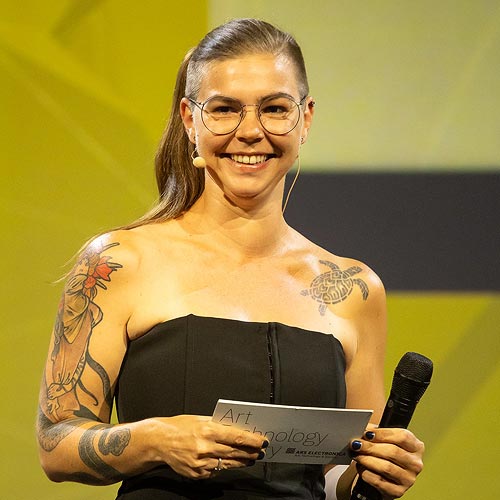
Photo: Vanessa Hannesschläger
Vanessa Hannesschläger
Vanessa Hannesschläger is head of European Collaboration at Ars Electronica. She holds a PhD in literature from the University of Vienna and teaches digital humanities in Austria and Sweden. Before joining Ars Electronica, Vanessa worked on developing European digital research infrastructures and numerous projects involving physical and digital archives for cultural heritage and art. In the European policy context, Vanessa advocates for digital infrastructures for the arts and humanities, data and legal literacy, the Commons, and Open approaches.
